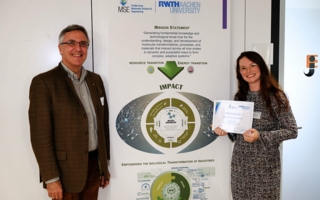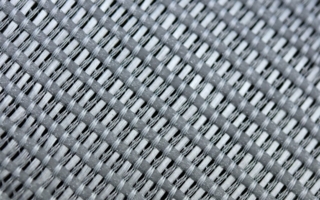26/08/2015 — auf Deutsch lesen
Quest for “sustainable” leather
No fewer than 7 billion pairs of polyurethane shoes are produced worldwide every year. Besides this incredibly large quantity, “pleather” is becoming increasingly popular in furniture, bags and apparel. Its manufacture, however, still has serious implications for the environment.
This is because carcinogenic solvents are widely used in the making of faux leather, as Nicholas Smith, Global Head of the Textile Coating Division at Bayer Material Science, explained in an interview with textile network. Fortunately, this is changing with the arrival of a new technology known as Insqin. Based on a dry process, this innovation does not make use of any harmful solvents and protects the environment further by “reducing water consumption by an impressive 95 per cent”, without having to compromise on desirable properties such as softness, light weight, flexibility and washability.
Leading on from this technology, Bayer MaterialScience presented another sustainable innovation at this year’s Techtextil in Frankfurt. Impranil eco encompasses a series of biobased, waterborne polyurethane (Pur)-dispersions within the Insqin Programme for polyurethane coated materials. Boasting a renewable content of up to 65 per cent, the new product category contributes to reducing CO2 emissions whilst enhancing the sustainability of waterborne polyurethane. In this context, Smith states: “Sustainability is becoming a purchasing decision criterion for consumers and is high on the agenda for the textiles industry. Impranil eco improves the ecological footprint for manufacturers, OEMs and brand owners.”
This new technology enables manufacturers to produce for the first time synthetic materials and coated fabrics with a high proportion of renewable raw materials in every layer. The performance matches that of conventional products and the bio-based raw materials can be used immediately without reformulation.
Besides bio-based grades, Bayer Material Science seized the opportunity in Frankfurt to unveil a range of other new types of water-borne polyurethane dispersions within the Impranil series. Impranil DAA was developed specifically for tiecoats in fashion and footwear applications.
This product gives rise to soft materials that retain this property even at low temperatures – an attribute that is particularly sought after in the fashion field. In sports footwear applications, great demands are made on the material’s performance properties. Impranil DLE paves the way for developing uppers that meet the highest industrial specifications, above all, with respect to bonding strength.
The automotive industry, on the other hand, can benefit from the new Impranil DLC-T. This product makes it possible to develop car interior materials that combine the industry’s need for matt surfaces with extremely high resistance to abrasion, hydrolysis, light and heat.
The aqueous and solvent-free Insqin technology, embracing polyurethane coatings for textiles, was brought to market in 2014. This product includes technical services for the development of innovations and sustainable materials as well as a high degree of transparency along the supply chain. Insqin is synonymous with innovative technology designed for the coating and finishing of textiles and imitation leather.
Polyurethane coated materials are already enhancing properties and functionality both in clothing and footwear. Insqin allows the appearance, feel, functionality, design and even the manufacturing process to be customised, whilst offering environmental benefits and saving resources. Smith states: “As a company with its roots in the chemicals industry, we also place our technical expertise directly at the disposal of the brands, whilst simultaneously working together with manufacturers of coated materials.”
This kind of collaboration, he says, greatly differs from the more conventional linear cooperation that takes place along the value chain. Overall, the new partnerships give rise to products that were not previously available. “In combination with our Insqin Partner Manufacturer Programme this approach is convincing more and more brand owners to work with us.”
The launch of new products within the Impranil line in May 2015 is expanding the opportunities open to a wide variety of applications.
[ www.bayer.de]





